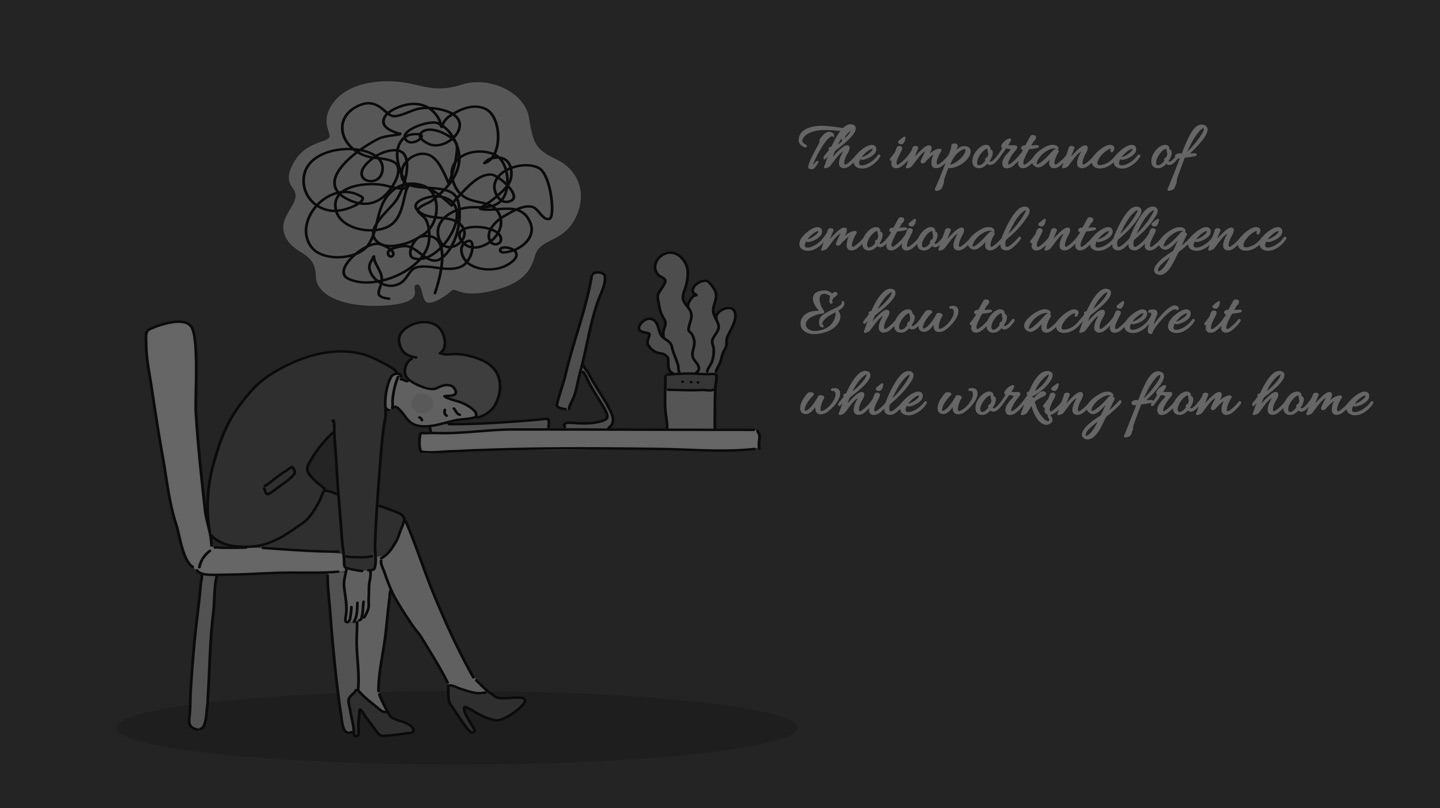05 Apr The Importance of Emotional Intelligence and How to achieve it while Working From Home
When we talk about emotional intelligence, we’re talking about the ability to recognise, understand and manage our emotions and the emotions of others. It’s the level of empathy you showcase while reacting to the emotional state of others. Now, emotional intelligence is a vital ingredient that will help you adapt to working remotely, both as a manager and team member. Everything that you would do in an office to maintain work relations and connect with your colleagues on a socio-emotional level now has to be done virtually. You don’t have the liberty of having candid conversations at the water cooler, sharing a meal, or turning around and asking your colleague for help when you’re in a fix.
If you assume that everyone’s coping and doing okay, you couldn’t be further from the truth. There are those who are afraid to ask questions during a virtual call with other members, those who need validation every time they complete a task, and those whose productivity is decreasing because of lack of guidance. If you don’t pay attention to this, the team spirit and work morale that exists will completely shatter, forcing you to build it again from the ground up.
Here are a few things you and your team can practice:
- Work Management – Have a routine and a dedicated workspace at home. Get out of your pyjamas and into something semi-formal so that you feel like it’s a workday.
- Self-care – Work from home doesn’t mean work 24×7. Stick to working hours and engage in some hobbies and leisure after work.
- Clear Communication – Now that you can’t debrief after a presentation, you have to be absolutely clear in your work emails. Whether it’s briefing your team or confirming what you need to get done, try and write emails that are crisp and clear.
- Team Bonding – During virtual meets, take a few minutes to have some informal chats with the team. Ask them how they’re doing, if they need any assistance, and lighten the mood with some fun stories before getting to work discussions. Don’t forget the Zoom celebrations and one-on-one calls when needed.
- Appreciation and Motivation – Since you can’t appreciate them with a pat on the back or non-verbal signs, you have to be expressive over the Zoom calls and emails while appreciating those who deserve it.
By engaging in these small practices, together, you will overcome the emotional challenges of remote working, and create a virtual work culture that is strong and healthy.



No Comments